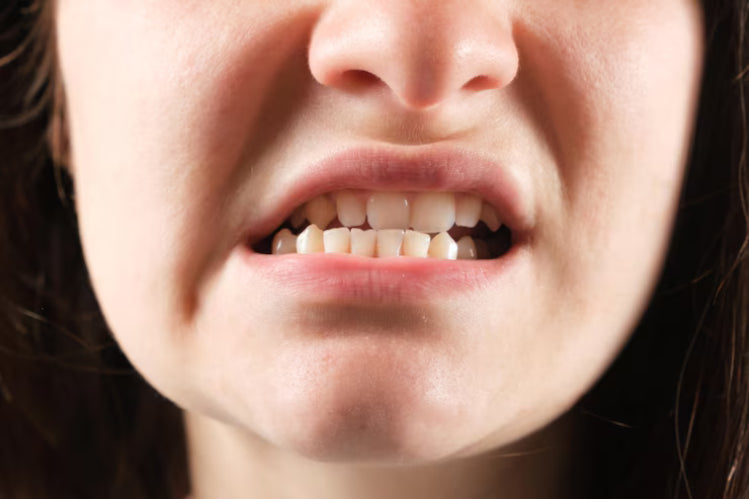Table of contents
Malocclusion, or misaligned teeth, can have an impact on more than simply how your smile looks. They may also result in a range of oral health problems that can adversely affect your general health. We'll discuss the relationship between improperly aligned teeth and oral health in this blog post, as well as how correcting alignment problems can enhance dental health.
Understanding Misaligned Teeth
When the jaw is closed, misaligned teeth happen when the upper and lower teeth do not fit together properly. Several malocclusions, such as an open bite, crossbite, underbite, and overbite, may occur due to this. Alignment abnormalities can cause difficulties with speaking, chewing, and keeping teeth clean.
The Effects of Misaligned Teeth on Dental Health
Malocclusion, the term for misaligned teeth, can result in a number of dental health problems outside simple aesthetic ones. We'll look at some typical issues brought on by misplaced teeth in this blog post and talk about possible solutions.
Gum Disease and Tooth Decay
Having misaligned teeth increases the chance of gum disease and tooth decay, which are two of the biggest concerns. It might be difficult to adequately clean teeth that are crowded or crooked, which encourages the accumulation of plaque and bacteria. This can eventually lead to gum inflammation (gingivitis), which can develop into periodontitis—a more serious form of gum disease—if treatment is not received.
Jaw Aches and TMJ Issues
Teeth misalignment can cause problems with the temporomandibular joint (TMJ), which can result in jaw pain. Chewing difficulties, clicking or popping sounds, and discomfort are all possible outcomes of the strain on the jaw joints and muscles. In addition to causing headaches, earaches, and neck pain, TMJ issues can significantly lower quality of life in general.
Speech-Related Barriers
The clarity of speech can be impacted by misaligned teeth that obstruct appropriate tongue placement and airflow. Pronunciation issues with some consonants can result in speech impairments like slurring or lisping. This may have an effect on confidence and communication, particularly in social and professional contexts.
Solution for Misaligned Dental Teeth
Fortunately, misaligned teeth can be corrected and oral health can be enhanced with a variety of orthodontic treatments. By progressively moving teeth into their correct locations, traditional braces, clear aligners, and other orthodontic products can help lower the risk of oral health problems and enhance overall dental function.
Conclusion
Misaligned teeth raise the risk of gum disease, tooth decay, jaw pain, and trouble speaking. By reducing these risks, orthodontic treatment can improve oral health and overall well-being. For treatment alternatives, speak with an orthodontist if you are impacted.
FAQs
1. How do teeth that are not aligned affect oral health?
Teeth that are not positioned correctly might make cleaning harder, which raises the risk of dental decay and gum disease.
2. Can misalignment-related oral health problems be resolved with orthodontic treatment?
Yes, orthodontic therapy can reduce the chance of oral health issues by properly aligning teeth.
3. What are the advantages of correcting tooth misalignment in terms of dental health?
Correcting misaligned teeth helps strengthen general dental health, avoid dental problems, and promote good oral hygiene.
4. How can I tell whether the alignment of my teeth is off?
Speak with an orthodontist or dentist who can examine your teeth and suggest the best course of action.













